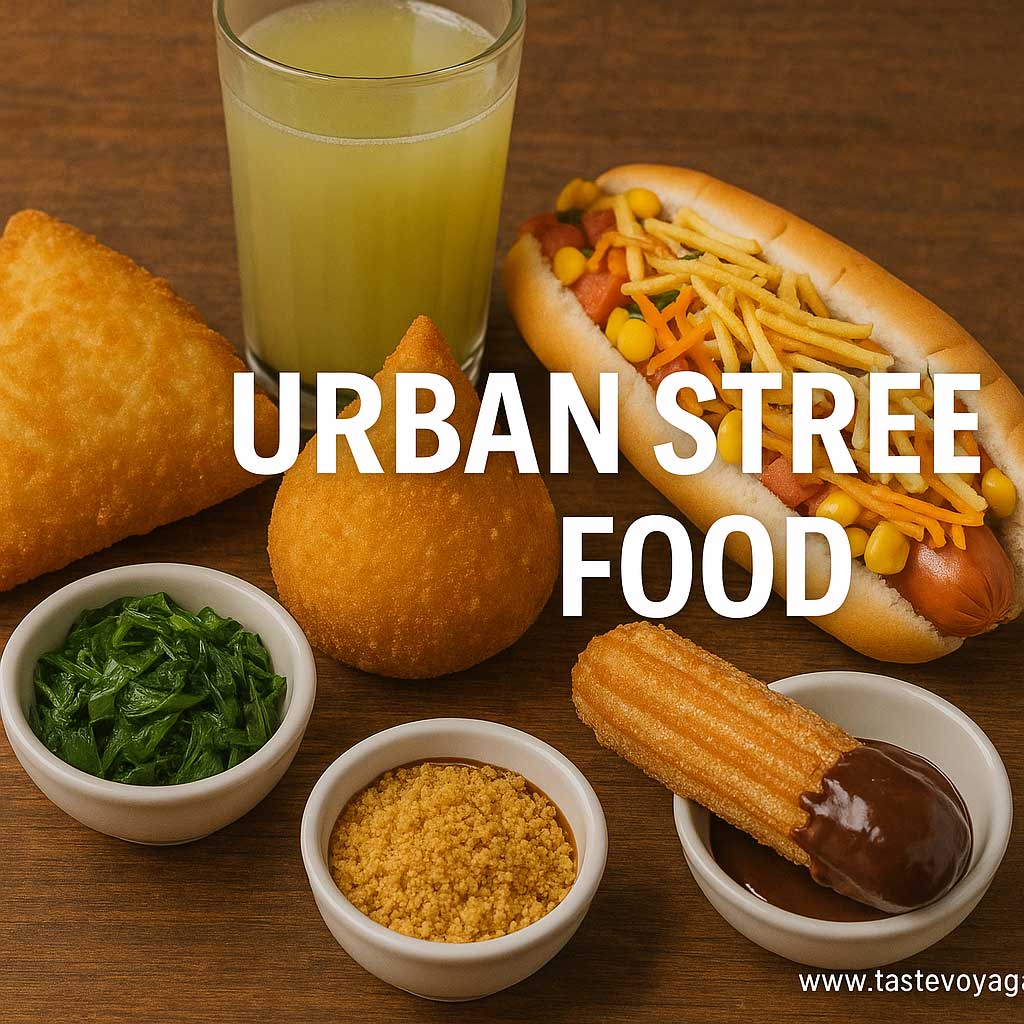Delicious Brazilian Mango Juice (Suco de Manga) Recipe
Travel the World Through Food >> Brazilian Cuisine>>Urban Street Food>> Delicious Brazilian Mango Juice (Suco de Manga) Recipe
Delicious Brazilian Mango Juice (Suco de Manga) Recipe
Discovering Suco de Manga: A Refreshing Brazilian Tradition
Brazilian Cuisine is renowned for its vibrant flavors, colorful ingredients, and diverse culinary traditions. Among its many beloved beverages, Suco de Manga, or Brazilian Mango Juice, stands out as a true symbol of refreshment and cultural significance. This delightful drink captures the essence of Brazil’s tropical climate and its abundant mango harvests, making it a staple in households and social gatherings across the country.
The Cultural Significance of Suco de Manga
In Brazil, fruit juices are more than just beverages; they are an integral part of daily life and social interactions. Suco de Manga is especially cherished during warm months when the sweet aroma and juicy taste of ripe mangoes bring a natural cooling effect. Families often enjoy this drink at breakfast tables, and it’s common to see it served at local festivals, street fairs, and celebrations. Its popularity reflects a deep appreciation for fresh, locally sourced ingredients and the artful way Brazilians incorporate fruits into their hospitality.
Furthermore, mangoes hold a special place in Brazilian culture. They symbolize abundance, tropical paradise, and a sense of community. The act of sharing a glass of Suco de Manga fosters conviviality and connection, reinforcing bonds among friends and relatives. Over generations, this simple yet flavorful beverage has evolved into a symbol of warmth and welcoming hospitality.
Culinary Significance of Suco de Manga
Suco de Manga is celebrated for its pure, natural flavor. It highlights the sweet, fragrant qualities of ripe mangoes, offering a taste experience that’s both invigorating and comforting. The drink’s vibrant golden hue mirrors the sunny landscapes of Brazil, making it as visually appealing as it is delicious.
Culinarily, Suco de Manga pairs effortlessly with a variety of Brazilian dishes. Its refreshing nature complements spicy regional foods, grilled meats, and hearty stews. It’s often enjoyed as a revitalizing afternoon pick-me-up or a cooling accompaniment during festive meals. Its versatility and natural sweetness make it a favorite among children and adults alike.
The Role of Mango Juices in Brazilian Food Culture
Mango juice’s significance extends beyond individual consumption. It exemplifies the Brazilian love for fruit-based drinks and their dedication to celebrating natural flavors. Juices like Suco de Manga are often prepared with minimal processing, emphasizing freshness and purity, which aligns with Brazilian culinary values of authenticity and simplicity.
Throughout Brazil, the preparation and consumption of mango juice serve as reminders of the country’s rich biodiversity. They reflect an appreciation for the land’s bounty and the skillful ways in which Brazilians transform tropical fruits into delightful beverages. This tradition continues to thrive, connecting generations through shared flavors and memories.
Embracing the Tropical Spirit
Whether enjoyed at home or in lively social settings, Suco de Manga embodies the joyful, tropical spirit of Brazil. Its popularity speaks to a broader cultural appreciation for vibrant, natural ingredients and the art of hospitality. For visitors and locals alike, this bright, flavorful juice offers a taste of Brazil’s warm, welcoming personality.
In conclusion, Suco de Manga is more than a refreshing drink; it is a cultural emblem that celebrates Brazil’s tropical abundance and culinary artistry. Its vibrant flavor and deep-rooted significance make it a must-try for anyone eager to explore the rich tapestry of Brazilian food culture. So, next time you sip on a glass of Brazilian Mango Juice, remember that you’re experiencing a piece of Brazil’s joyful, flavorful heritage.
